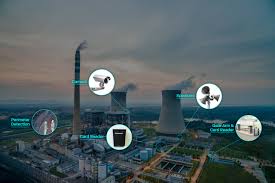In this day and age, critical infrastructure is the foundation of society. These frameworks, from power plants and water treatment facilities to transportation organizations and communication centre points, are essential in keeping everything moving as planned. Without them, the cutting-edge world would come to a standstill. That is where security services offer the assurance to guarantee that these essential resources stay protected from disturbance, harm, and assault. Yet, how precisely do security services in Melbourne safeguard critical infrastructure? Let’s explore.
The Job of Security in Safeguarding Critical Infrastructure
Critical infrastructure is vital for public safety, monetary soundness, and wellbeing. Whether it’s a local power network or an enormous scope of large-scale telecommunications office, these frameworks are often practical objectives for physical and digital dangers.
Security services for critical infrastructure include many methodologies, from actual safety efforts like observation cameras and access control to network protection conventions that safeguard against hacking and advanced harm. Their essential objective is to guarantee that these resources are robust against a wide range of dangers — whether that implies forestalling actual interruptions, halting cyberattacks, or managing crises rapidly and productively.
Given the inexorably intricate nature of these frameworks, the security services included are profoundly particular. They join best-in-class innovation with exceptionally prepared faculty to provide a diverse defence.
Physical Security: Safeguarding the Physical Resources
Physical security is one of the main parts of getting critical infrastructure. Many of these offices, such as power plants, water treatment plants, and petroleum treatment facilities, are in remote or modern regions. This thing makes them powerless against actual assaults, burglary, or damage.
Security services utilize a scope of physical safety efforts to safeguard these resources. The clearest of these is the presence of safety officers who screen passageways, watch the premises, and answer any dubious action. Watches are frequently positioned at doors to screen who enters and leaves the office and can perform sack checks, ID confirmation, and vehicle investigations.
Notwithstanding human security, border security assumes a critical part. Fencing, security obstructions, and electronic doors are intended to make unapproved access troublesome. Observation cameras are one more basic apparatus in actual security, regularly checking the site and permitting security faculty to recognize and answer any interruptions. Present-day security frameworks likewise utilize movement finders, infrared sensors, and robot reconnaissance, which can continuously distinguish development around the border and ready gatekeepers.
Another developing pattern is the utilization of access control frameworks, such as biometric scanners, keycard access, or even facial acknowledgment, to confine sections to delicate regions. This step adds a layer of security by guaranteeing that the centrally approved staff can enter essential pieces of an office.
Cybersecurity: Guarding Digital Foundation
Notwithstanding physical security, safeguarding critical infrastructure includes cybersecurity— mainly as many of these frameworks depend on computerized innovations for checking, control, and correspondence. Cyberattacks can be similarly harmful, while possibly not all the more so than actual assaults, and generally speaking, they can prompt service disturbances, information breaks, or more terrible.
For instance, a cyberattack on a power network can cause far and wide blackouts or harm gear. Likewise, a break in the water treatment framework can make one think twice about the wellbeing of drinking water. Security administrations safeguard against computerized dangers by utilizing firewalls, encryption innovations, interruption location frameworks, and high-level danger observation to shield delicate information and forestall unapproved admittance to control frameworks.
Integrating Industrial Control Systems (ICS) and Supervisory Control and Data Acquisition (SCADA) frameworks in basic foundation makes them defenceless against hacking endeavours. Network protection specialists screen these frameworks daily to distinguish any shortcomings or weaknesses. They additionally run ordinary infiltration tests to guarantee the frameworks stay secure against developing digital dangers.
Moreover, occurrence reaction teams are vital for moderating the impacts of a cyberattack. These groups can rapidly detach impacted frameworks, limit harm, and direct policing government offices to address the break.
Crisis Reaction and Emergency Management
Security services for critical infrastructure don’t simply include avoidance but incorporate groundwork for crisis circumstances. A decent security system consolidates emergency management and catastrophe recuperation conventions. That’s what these administrations guarantee: assuming something turns out badly, security groups are ready to answer immediately, limit harm, and reestablish administrations as fast as possible.
For instance, if a fire breaks out at a power plant or an oil slick happens at a treatment facility, security groups are liable to guarantee representatives’ wellbeing and forestall the spread of harm. They might work intimately with local groups of firefighters, specialists on call, and hazardous materials groups to deal with the circumstances and contain the danger.
In case of a cyberattack or cataclysmic event, security benefits frequently have emergency courses of action set up, which can incorporate information reinforcements, framework redundancies, and elective power supplies to keep tasks running. Security groups are likewise prepared to deal with emergencies and speak with partners, including the general population, local specialists, and the media.
Conclusion: The Eventual Fate of Critical Infrastructure Security
The security of critical infrastructure is a consistently advancing challenge. As innovation progresses and new dangers arise, security services should stay versatile, using state-of-the-art innovation and a profoundly prepared workforce to protect these crucial frameworks.
Whether through robust physical security, high-level network protection measures, emergency management plans, or cooperation with policing, administrations assume an essential part in guaranteeing the proceeded activity of the foundation we rely upon daily. Without them, the dangers to public wellbeing, monetary soundness, and public safety would be perfectly disregarded.
As the world becomes more interconnected, the significance of getting critical infrastructure will develop. By remaining in front of possible dangers and persistently further developing security practices, these administrations will stay a fundamental line of safeguard for quite a long time into the future.
Keep an eye for more news & updates on MyStorieslist!
